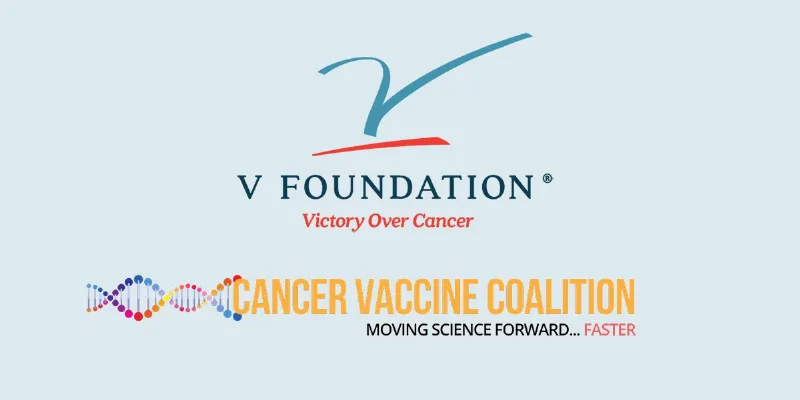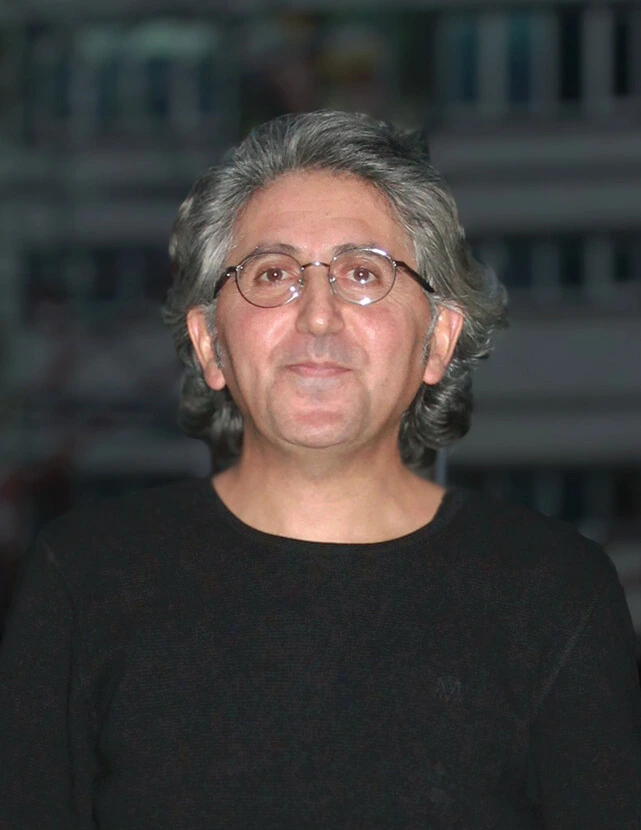The V Foundation and CVC Collaborate to Advance Breast Cancer Vaccine Research


ONCOLife |
12 September 2025
It was truly exciting and a great pleasure to have the opportunity to interview Susanna Greer, Ph.D. Chief Scientific Officer at the V Foundation for Cancer Research, and Kristen Dahlgren, founder of the Cancer Vaccine Coalition and former NBC correspondent, to learn firsthand about their inspiring collaboration and forward-looking vision to advance cancer vaccine research for breast cancer. Their partnership represents a bold step toward changing how we approach cancer treatment. This collaboration is not only accelerating clinical trials but also reshaping the landscape of survivorship and precision medicine, offering new hope to cancer patients.
Click the picture to view the PDF version: Pg 10-14.
In a bold move to fast-track the next frontier in oncology, the V Foundation for Cancer Research and the Cancer Vaccine Coalition (CVC) have announced a first-of-its-kind partnership aimed at accelerating the development of therapeutic breast cancer vaccines. The collaboration, which will fund early-phase clinical trials through “Game-Changer Grants,” represents a critical step toward bringing precision vaccines from bench to bedside.
“It’s an incredibly exciting era,” said Susanna Greer in an exclusive interview with ONCOLife. “We’re now able to design vaccines based on an individual’s tumor profile, not just their cancer type. That means we’re not just treating breast cancer — we are treating your breast cancer. These personalized vaccines bring together next-generation sequencing, AI, machine learning, and immunology. It’s truly a convergence of disciplines.”
A Shared Vision
The V Foundation, founded in 1993 by ESPN and legendary basketball coach Jim Valvano, has long been a corner-stone in cancer research philanthropy. With over $400 million awarded to more than one thousand three hundred investigators across North America — and 100% of direct donations going to research — it’s one of the most efficient and trusted funders in oncology.
“The Cancer Vaccine Coalition is an incredible organization funding clinical trials that train the immune system to recognize and eliminate cancer,” said Greer. “The V Foundation brings scientific rigor, infrastructure, and a strong track record to accelerate those efforts. Together, we’re combining survivor voices, scientific excellence, and advocacy to ensure research is cutting-edge and patient-centered.”
Why Vaccines, Why Now?
The field of therapeutic cancer vaccines has seen rapid advancement in recent years, fueled by breakthroughs in next-generation sequencing, immunology, and AI. The new partnership is focused on accelerating vaccine development for breast cancer — particularly in preventing recurrence, which remains a lingering fear for millions of survivors.
“For survivors, recurrence often feels like a shadow that lingers after treatment ends,” said Greer. “Vaccines offer a way to change that narrative. Instead of watching and waiting, we can train the immune system to patrol for signs of cancer’s return. This approach could be especially transformative for triple-negative breast cancer, where we currently lack targeted treatments. A vaccine that prevents recurrence in high-risk cases would be a game changer.”
Greer emphasized the shift from a one-size-fits-all model to a more precise and individualized approach. “Breast cancer vaccines hold incredible promise, especially in preventing recurrence. The idea of training the immune system not just to recognize cancer cells, but to remember them — that’s the power of immunologic memory: durable, targeted protection. What excites us most is the shift to-ward personalized vaccines. It’s a paradigm shift — from a one-size-fits-all approach to precision medicine at its most refined and personal.”
Mapping the Breakthrough To ensure scientific rigor and impact, the V Foundation relies on a peer-review system designed to fund research with the highest potential.
“We use a rigorous peer review process modeled after the NIH, with a focus on innovation and translational potential. Our Scientific Advisory Committee is comprised of world-leading cancer experts who ask essential questions,” said Greer. “Will this address a critical gap in cancer biology or care? Can it change clinical practice? Is it scientifically solid and boundary-pushing?”
“What’s exciting is that the technologies and insights we gain through the breast cancer initiative won’t remain siloed. Once we establish a proof of concept, we can expand into other solid tumors, like lung or ovarian cancers. Our goal is to create a clear roadmap: how to fund, evaluate, and deliver cancer vaccines with real-world impact. If we succeed in breast cancer, we can set a strong precedent for vaccine research across oncology,” she added.
Vision for the Future
The new partnership is closely aligned with the V Foundation’s long-term strategic pillars. “We’re guided by several strategic pillars. First, we are accelerating translational research by funding more earlyphase clinical trials, including immunotherapies and cancer vaccines that can quickly impact patient outcomes. Second, we are expanding focus on research equity by increasing support for underrepresented researchers and studies that address cancer disparities because everyone deserves the best care.
Our third pillar is advancing survivorship science. As more people live beyond cancer, we’re investing in research that not only saves lives but improves quality of life —particularly in areas like therapeutic vaccines. We’re also deepening collaborations with nonprofits, industry, and even sports teams to amplify the impact of every dollar and discovery,” said Susanna Greer.
Hope and Action: Kristen Dahlgren’s Journey
A Survivor’s Mission For Kristen Dahlgren, founder of the Cancer Vaccine Coalition, the mission is deeply personal. “I was a national correspondent for
Today Show and Nightly News and a busy mom to a young daughter. Cancer wasn’t on my radar until I was diagnosed with breast cancer just after my 47th birthday.
With no family history of early-onset breast cancer, I was blindsided by this unexpected diagnosis. I knew early on I wanted to share my story and use my experience to bring hope to others,” said Kristen Dahlgren.
Kristen Dahlgren went on to say: “I was already doing medical reporting for NBC but, during my treatment became the go-to reporter for medical breakthroughs. Through my reporting I was introduced to Dr. Nora Disis of University of Washington’s Cancer Vaccine Institute, who was working on breast cancer vaccines.
She informed me about a study for late-stage HER2-positive breast cancer patients. 85% of participants who got the ideal dose are alive more than 10 years after vaccination, when the current median survival rate is five years. She explained that lack of collaboration, funding and awareness slowed research progress. This inspired me to quit my 30+ year career as a reporter to create a coalition of world-class scientists to work together and help us accelerate development.”
Since its founding in 2024, the Cancer Vaccine Coalition has raised over $2 million to support clinical trials. “There are so many stories from individuals who have gotten cancer vaccines, to patients who are desperate for one, to families who have lost loved ones waiting for a vaccine. The common thread among these stories is hope. Every single person we talk to grasps onto a vaccine as hope for their future without cancer,” Dahlgren said.
“One of the women who was a part of Dr. Disis’s HER2 positive trial said, ‘my prognosis was 16 months when I was diagnosed with stage 4 breast cancer and to me this was a lifeline... I’m still around after 20 years and doing so well.’”
Kristen Dahlgren reflected on the emotional urgency that fuels the Coalition’s work. “For every celebration, there are patients and families who urgently need access. I recently spoke to the mother of two young boys who gets scans every three months to monitor disease progression. She is stage 4 metastatic breast cancer and is hoping she can hold on long enough for a breast cancer vaccine to come to market and she can get it.”
She also shared a story that continues to resonate deeply. “Early this year, we heard from a volunteer who was praying she could get a vaccine. Unfortunately, she ran out of available treatment options and passed away in May 2025, leaving behind a husband and three boys. Her husband called us after she passed to express his gratitude and that she wanted donations to the CVC in lieu of flowers. I wish we could have done more for her.”
“Currently, cancer vaccines are in Phase I, II, and III clinical trials. We need to get more robust trials funded so we can get the data quicker and accelerate these through the regulatory process,” she added.
Building a Movement
Looking forward, Dahlgren emphasized the need for both funding and public awareness. “Our goal is to support the science and research so we can see therapeutic cancer vaccines widely acce sible in a decade or less. To get there, we are focused on two critical areas.
First, fundraising to support cancer vaccine research. Through our partnership with the V Foundation, we can vet and support the most promising cancer vaccine trials through these Game-Changer Grants. Second, we are building awareness and education because most Americans still don’t even know cancer vaccines exist. We can’t build support for something people do not understand,” Dahlgren said.
“If you want to help this movement, there are two ways to make an impact: donate to fund the research that’s happening now or get involved as a volunteer to help us spread the word. Ultimately, cancer vaccines are not just a medical breakthrough – they’re a race against time. And with help, we can all win that race,” she said.











Comments
No Comments Yet!